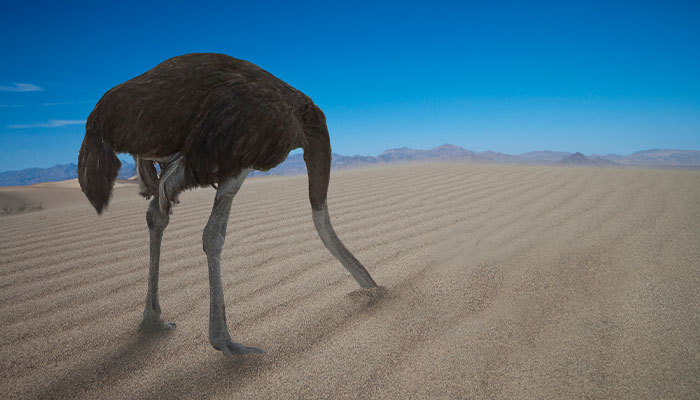Bad news is a little like chocolate, wine or takeaway – something that in excess is not good for us.

But asking how much more bad news we can stand, says Professor Nick Titov, from Macquarie University’s School of Psychological Sciences, is not the right question.
“It assumes bad news is a beast that is imposing itself on us, when what we need to do is wrest back some control against it.
“Our consciousness is naturally and automatically drawn to stories about danger. We are hard-wired to detect risk in our environment. This is sometimes called a ‘negativity bias’. It means our attention gravitates to news or media stories that are about suffering, death and risk.”
We tense when we see a headline that is anxiety-provoking but then quickly scroll to the next one.
Like eating too much chocolate, seeking out bad news is a habit we can break. There are choices to be made about how much toxic news we want to consume and how often. It's useful to think of information as a product or substance that we can choose to use or not to use.
“From a neurophysiological perspective,” says Titov, “our brains light up whenever we perceive a threat, something that could potentially harm us or damage us or our loved ones. We tense when we see a headline that is anxiety-provoking but then quickly scroll to the next one.
“We have to review our assumptions about news. News is not bias-free or value-free. Media outlets, even the credible ones, tend to publish or show shock-and-awe, scorched-earth stories. It's designed to attract us, to trigger our attention, and therefore it's mostly negative. We seek negative information much more than positive information. And that changes our worldview. The people who create media, who make it and produce it, know that. We have to call it out.”
Going down the scroll hole
Bad news is so pervasive it has lately developed its own language to reflect the way we fixate on negative events, scroll the bad stuff, and check feeds at every opportunity … “News fatigue”, “doom scrolling”, “zombie scrolling”, “going down the scroll hole” are now part of the lexicon.

Resilient nation: Professor Nick Titov says while Australians may feel battle-weary, they have essentially coped well in recent times.
But it doesn’t have to be like this. Nor is normal human experience a pathology that needs to be medicalised, says Titov. The solutions can be social solutions, behavioural, even if they are as simple as turning off the TV and moderating our use of social media or the 24/7 news cycle.
Time, perhaps, for a reality check, he says. Ask yourself: How likely is the world to descend into chaos? Have things ever been great? If they are not great, what can we do to address that?
“While many of us feel battle-weary or fatigued,” Titov says, “Australians have essentially coped well in recent times. They have shown genuine resilience.
There are more people reaching out to mental health services, but the severity of symptoms hasn't increased.
“It's important to acknowledge that our experience, although challenging, in the past two to three years is not akin to what people experienced during the world wars, where there were major shortages, threats to life on a daily basis, and phenomenal rates of deaths.
“It hasn’t been an easy road. But the level of suicides has not increased. It has probably gone down. There are more people reaching out to mental health services, but the severity of symptoms hasn't increased. Unemployment has dropped. People are actually coping quite well.”
Start the bad news withdrawal by setting some limits, urges Titov.
“Apple and Android devices have features like Screen Time or Focus Mode, which can help block apps at times you really must focus, or before bed.
“Find apps and browser extensions that do the same on computers.
“Remove devices from your room … try it!
“Replace the bad habits. For example, read at night instead, don’t scroll, leave your desk and walk for a bit. Set times - when and for how long - for checking news.”
Breaking the bad news habit: 10 easy steps ...
- Turn off news/social media notifications.
- Don’t review news before you go to bed.
- Get a good book.
- End the day with positive/uplifting news.
- Have a break if you are burnt out; unplug.
- Instead of seeking out news, do something different, and enjoy the difference.
- Reflect on how news is a choice.
- Plan to fill the day with the stuff you need to do/want to do, but have been putting off.
- Make the change with a friend.
- Determine your acceptable level of (toxic) news.
Professor Nick Titov is Founding Director of MindSpot, a national Australian digital mental health clinic which supports adults struggling with anxiety, depression, and chronic pain



